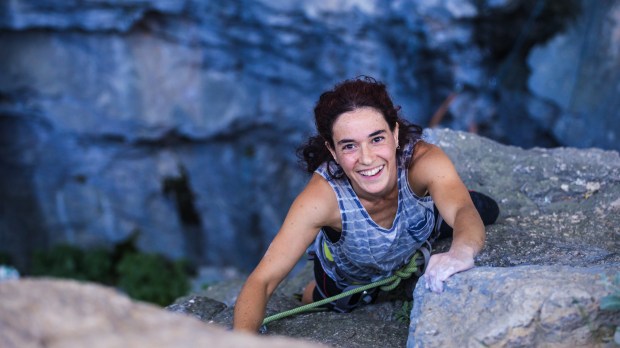Lenten Campaign 2025
This content is free of charge, as are all our articles.
Support us with a donation that is tax-deductible and enable us to continue to reach millions of readers.
When I watch my children play, I marvel at how little they fear.
Last summer, the boys hammered together a rickety bike ramp made of scrap wood. It looks like it will collapse if you so much as breathe on it. Personally, I have no plans anytime soon to ramp my bike over it. I’m fairly positive that it would immediately fall to pieces and leave me scraped up and rueful on the pavement. The boys, though, have no such concerns. They ramp wildly over it. It rattles and groans but hasn’t collapsed.
In any case, even though they won’t admit it, they know that even if they do get hurt on their bikes, their mother will always be there to hold them.
As a child, if you’d asked me what I wanted to be when I grew up I would’ve confidently said, “professional basketball player,” or, “famous artist.” I had no fear of the future, no anxiety over whether my goals were even close to attainable. I didn’t care to examine the question of whether, “famous artist,” is a career that would pay a mortgage. I had no hesitation about striving for a dream and no worries about experiencing failure.
Fear as an adult
As an adult, though, I regularly look to the future with fear. I worry about my health, issues with my job, how my retirement plan is looking, if our kids will grow up and maintain a strong Catholic faith, if our rusty old van will survive another winter.
Every adult I know has fear about something. This fear can be so intense that it’s paralyzing. We’re too afraid of what might happen, too fixated on what might go wrong, that we avoid making choices. Because of this, we suffer. We’re no longer those little children who so confidently take risks and dream big. Instead, we accept life-as-usual and muddle along.
Fear arises from uncertainty, either about the future or about what’s just out of sight. The disaster that might happen. Lurking failure. That doesn’t mean we should avoid thinking about the future or anticipating different possible scenarios that might play out. Quite the opposite. Our imagination, the ability to dream and hope, to visualize tomorrow, these are miraculous. They’re gifts unique to humanity. Fear and uncertainty is simply the price we pay.
Avoiding the extremes
In order to hold onto our dreams, we need find the right balance, neither denying our fears nor allowing them to paralyze us. Ignoring fear and opting to live only for the present moment has disastrous consequences. Fixating on them also causes issues. Either extreme leaves us stuck in idle.
We aren’t children anymore. We do have to consider the consequences of taking our bikes over the big ramp and getting hurt. The challenge is how to live with a proper level of fear, fearing the right things in the right way to the right degree, and at the same time holding onto our peace.
Wisdom from St. Augustine
I’m reminded of something St. Augustine says. He points out how important it is to fear rightly. It makes sense, for instance, to fear Hell. Not necessarily living in constant terror that we’ll end up there, but rather a healthy fear that motivates us to behave in such a way as to avoid an unpleasant fate.
It makes even more sense, Augustine says, to fear causing a rift in our relationship with God. As long as we hold it modestly and in the right proportion, this is a positive form of fear — not fear of punishment but a fear of missing out on the good. It’s a way of valuing what’s really important. We desire a close relationship with God and, thus, strive to love Him the best we can.
The amazing thing about reasonable and healthy fear is that, as it motivates us towards love, the fear disappears. Once we experience God’s love, we no longer experience fear in the same way. Perfect love casts out fear.
I always go back to the memories of my children fearlessly exploring and running riot. Why is it that children are like this? Why is it that they live with such exuberance and joy? It’s because their parents let them know they are loved. No matter what happens tomorrow, children know they will always be loved. Perhaps this is the best response that you and I can make when we experience paralyzing fear – to allow God to love us.



